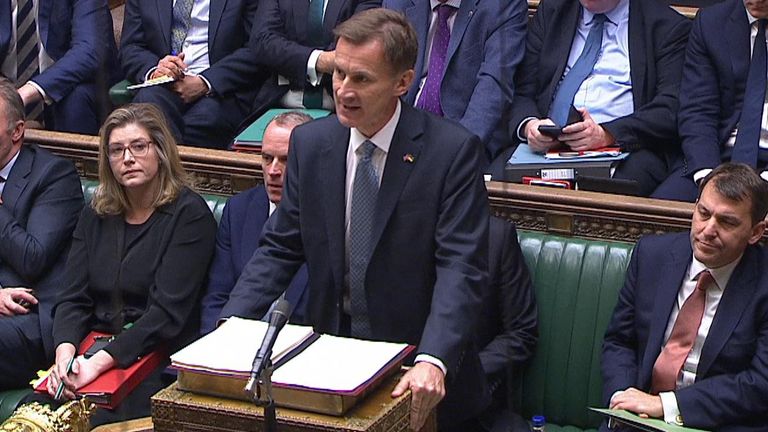Major North Sea oil and gas operator Harbour Energy has revealed plans for job cuts, blaming the impact of the government’s windfall tax on profits.
A spokesperson for Harbour, the biggest offshore producer in UK waters, said the job losses would impact its head office functions in Aberdeen.
They added that staff had been informed of the plans but the extent of the cuts were yet to be decided.
The final proposals would be subject to consultation, the spokesperson added.
It marked an escalation in the company’s response to the rise in the levy on energy profits revealed in Chancellor Jeremy Hunt’s autumn statement last November.
It took the rate to 35% from 25% as the government sought to recover some of the cost of its energy bill support for households and businesses.
The effective tax rate stands at 75% because of the 40% corporation tax charge already applied but some investment relief is granted under the levy.
Despite that, Harbour announced in December that it would review its capital allocation plans and shun an oil and gas licensing round in the North Sea.
The company said at the time that it would focus on growth opportunities within its existing portfolio.
Oil and gas giants including Shell and BP suffered tens of billions in losses when the COVID pandemic struck as raw energy prices stood at lows not seen in modern times.
But as economies slowly got back in gear, and with demand outstripping supply, prices recovered.
Wholesale gas costs, however, later hit record levels and were kept high as supplies were squeezed amid Russia’s war in Ukraine and the subsequent Western sanctions imposed on Moscow for its invasion.
The record profits enjoyed by big oil and the like placed a target on their backs, with countries, including the UK, imposing windfall taxes to try and offset some of the pain being inflicted on households and businesses from record bills.
Mr Hunt also introduced a 45% levy on electricity generators.
The government estimates that its windfall taxes, including the energy profits levy, will raise £14bn combined in 2023.


